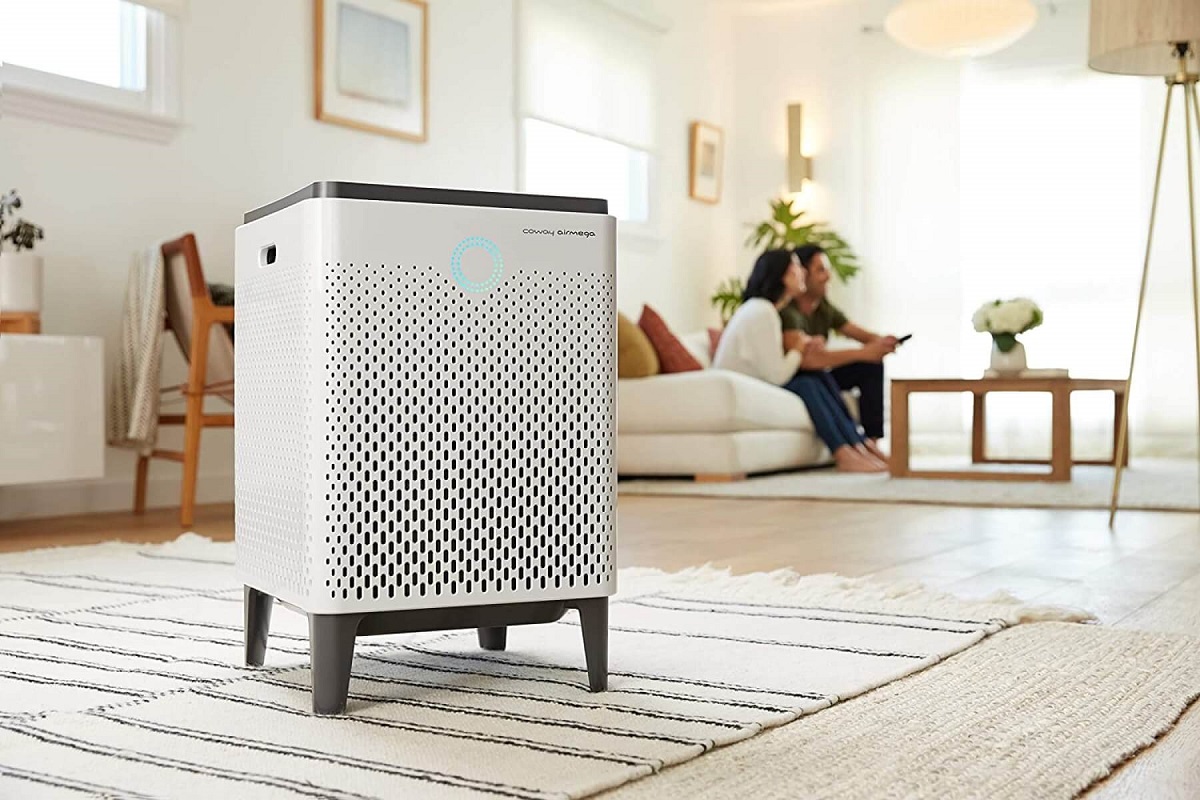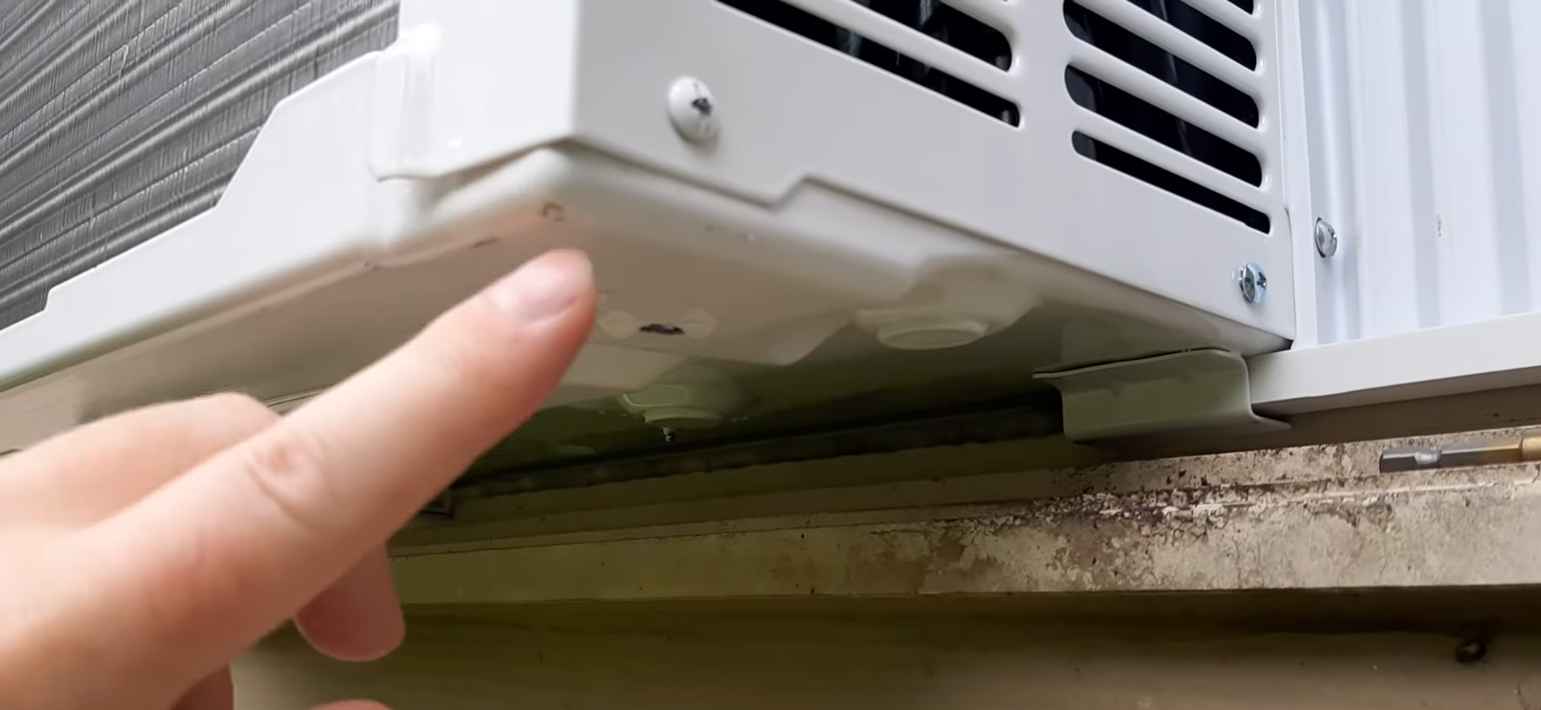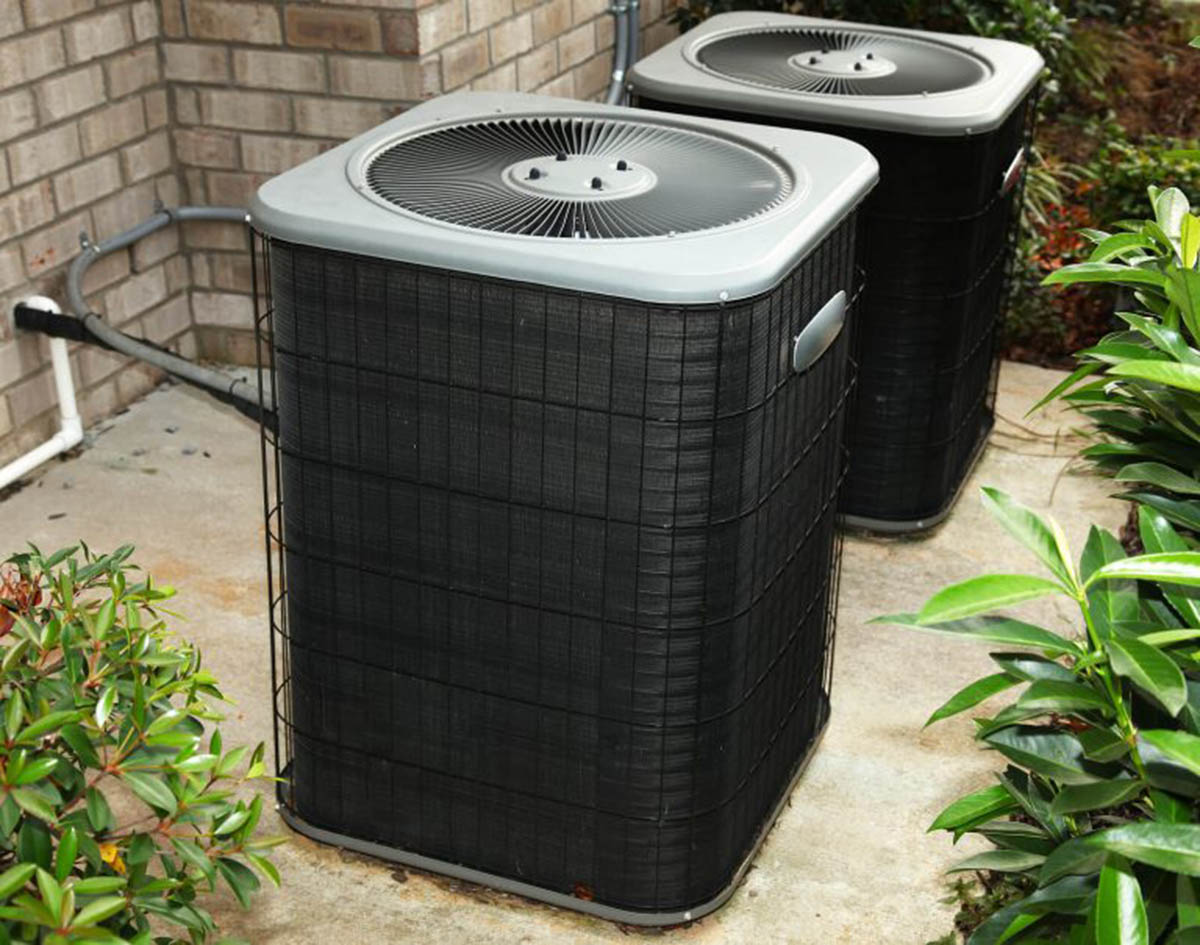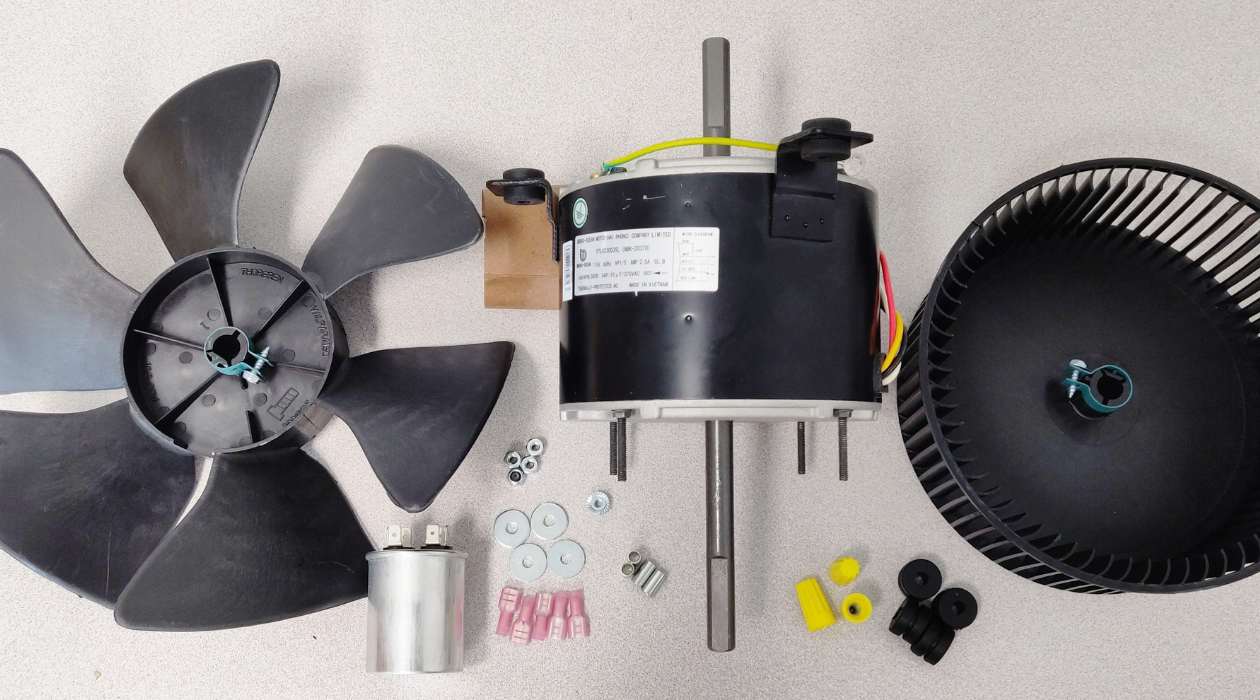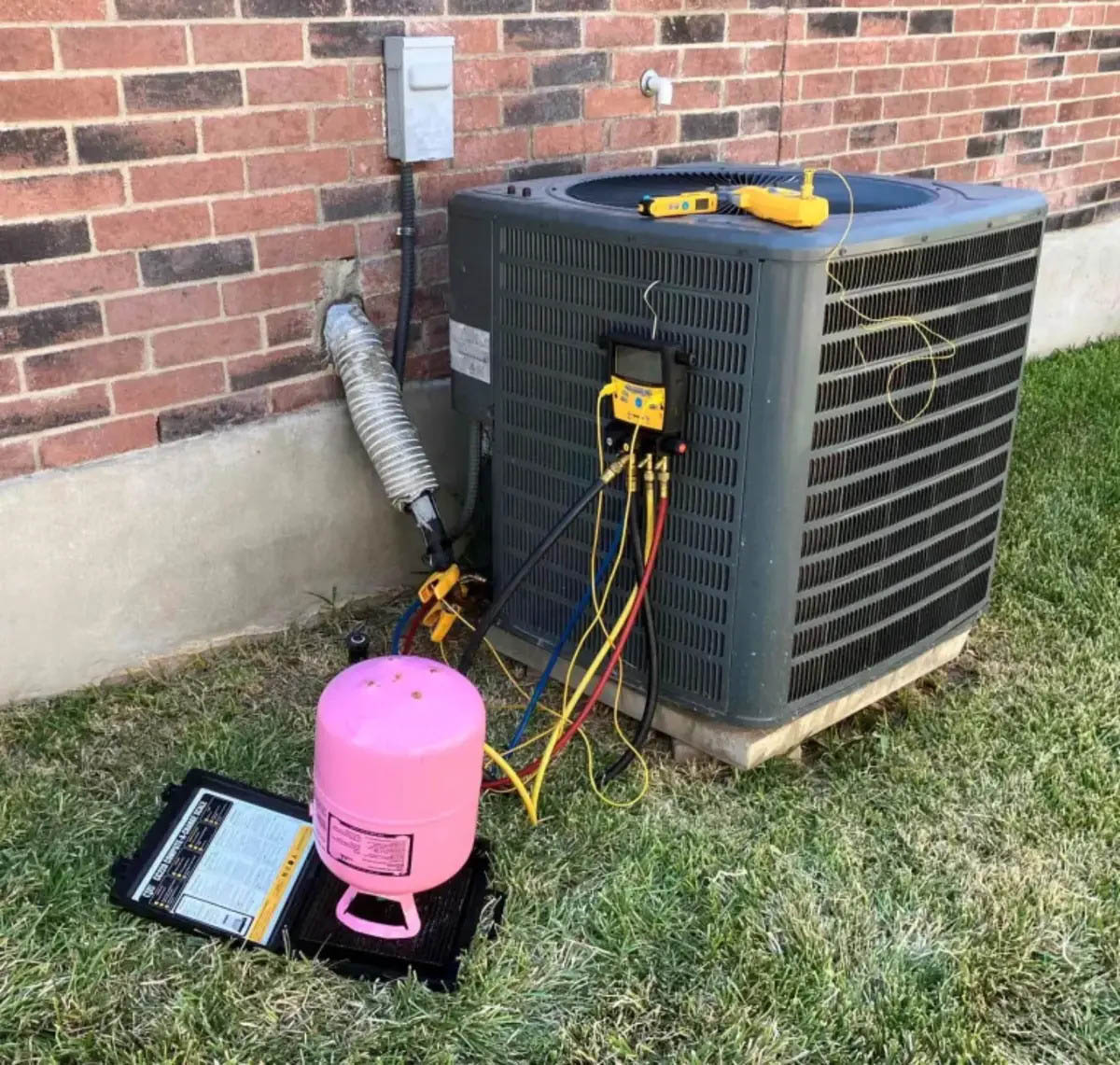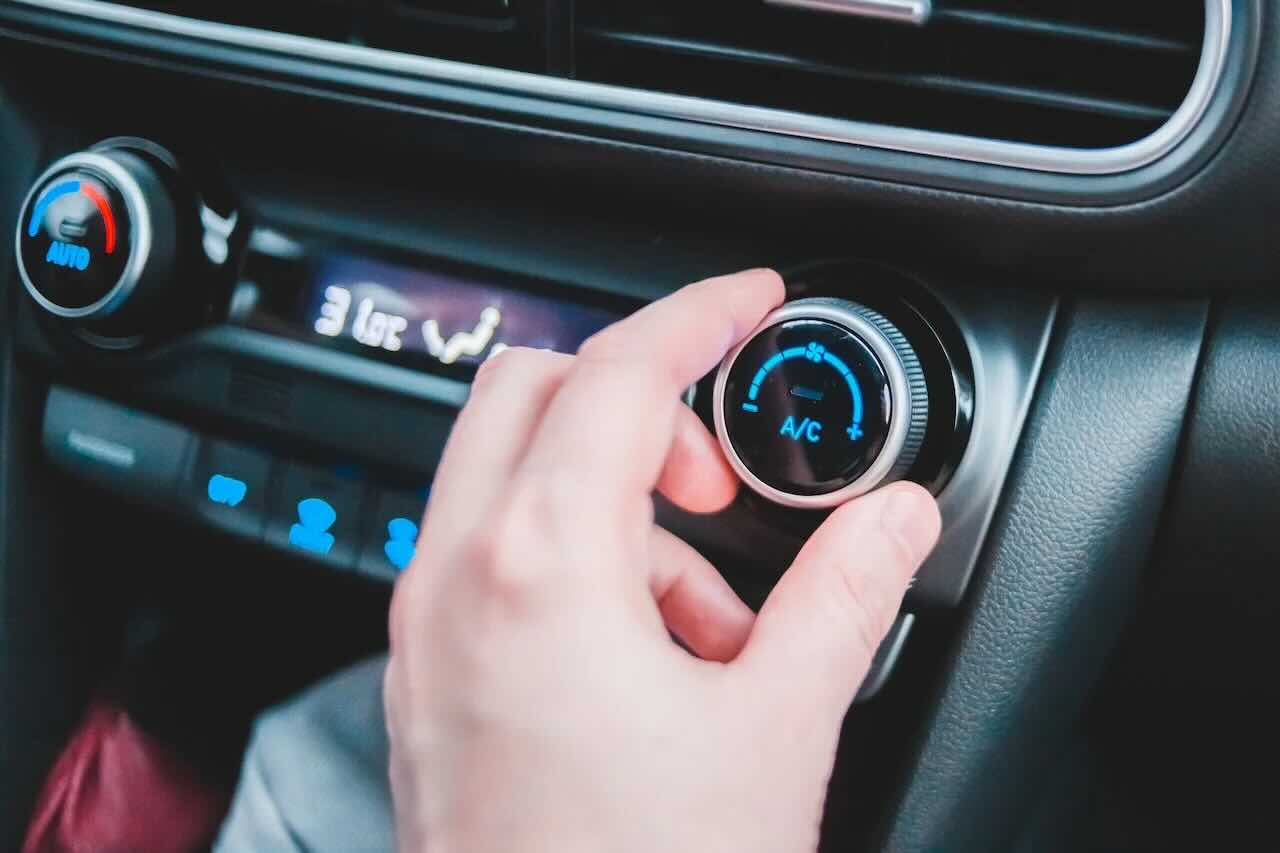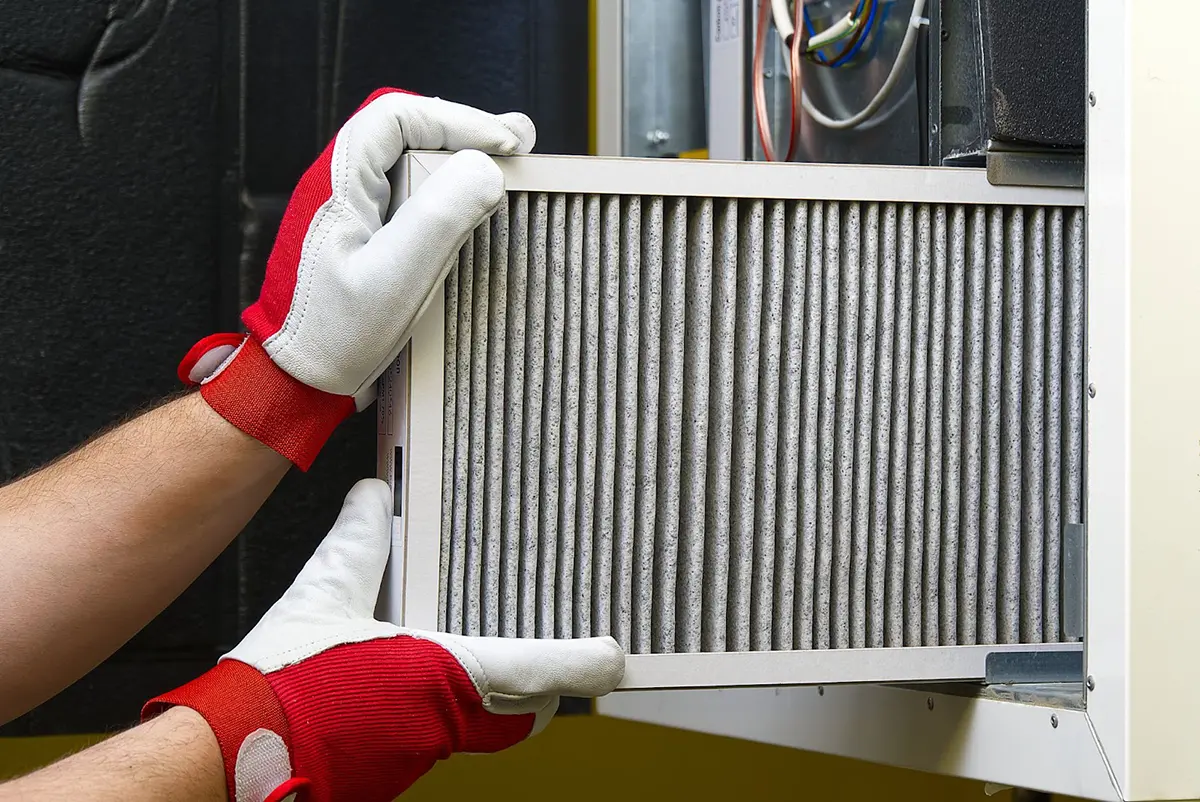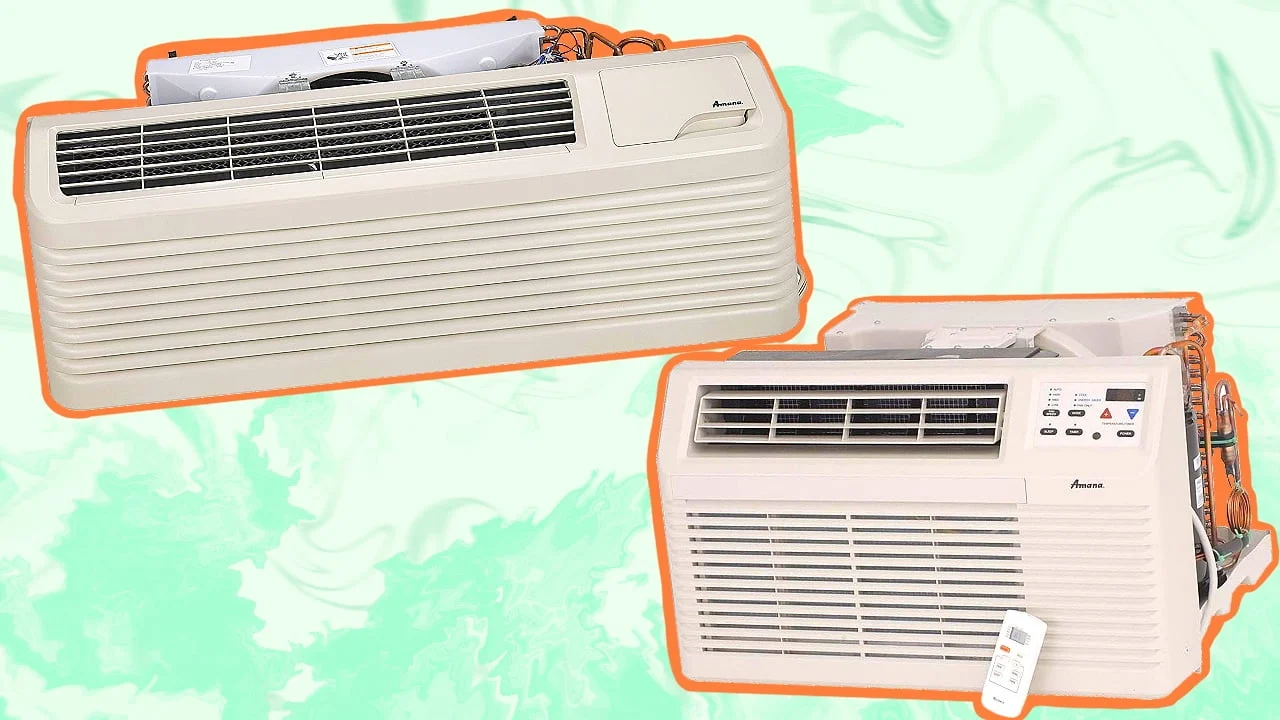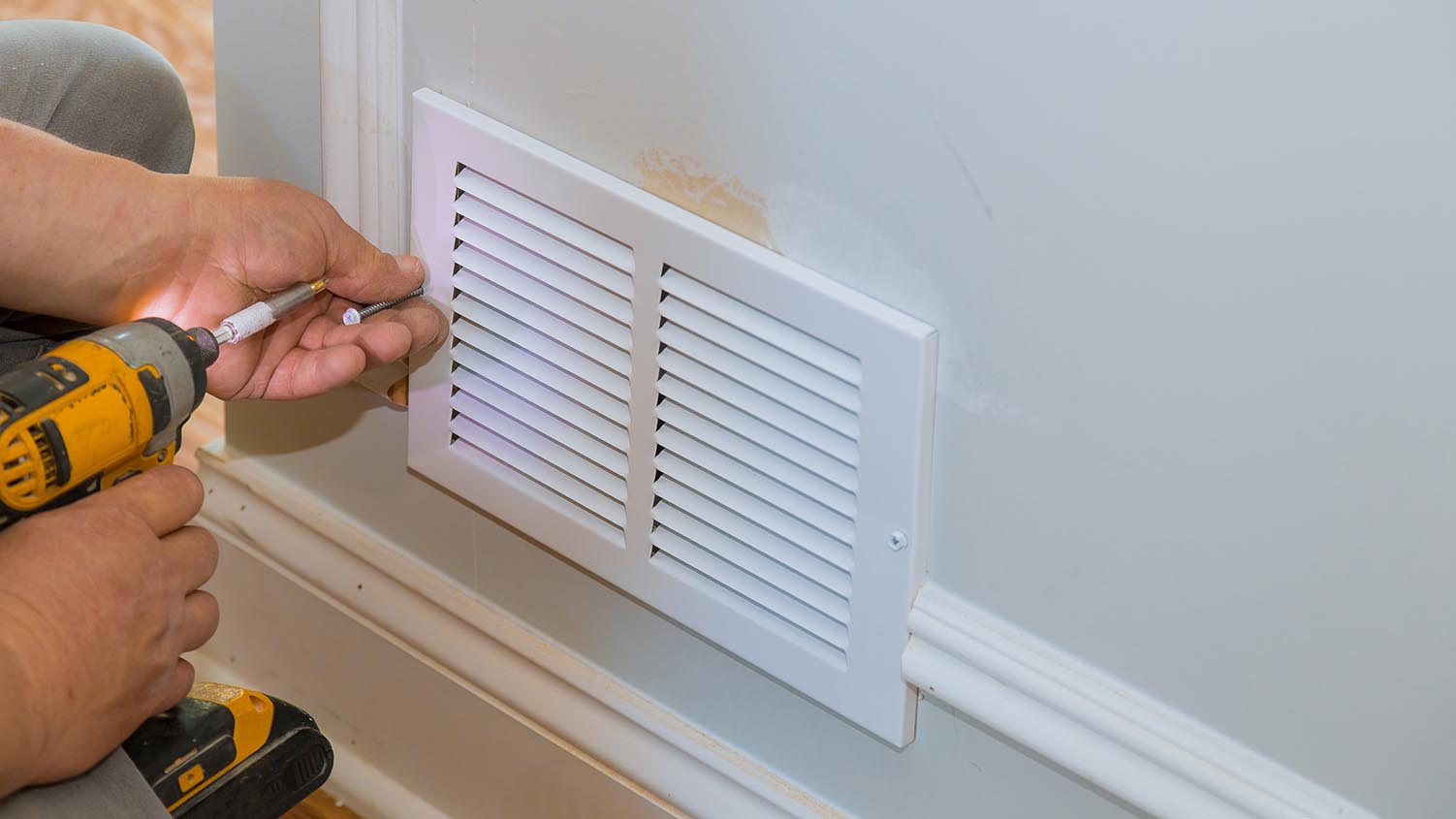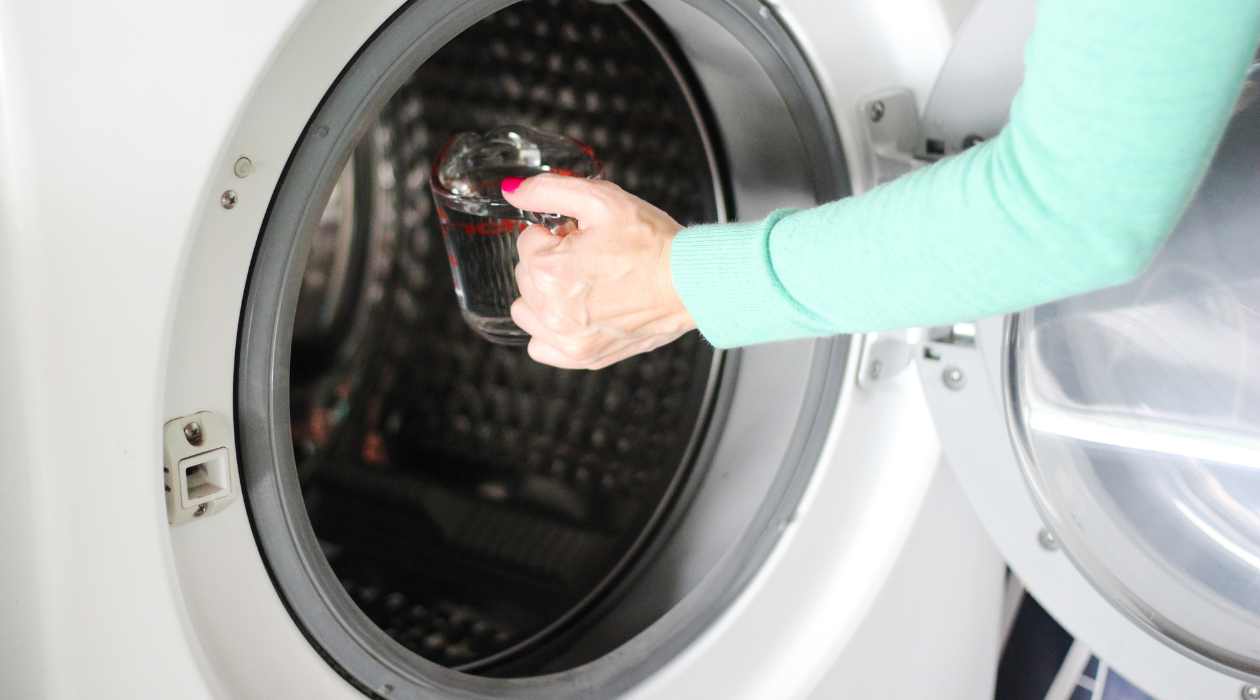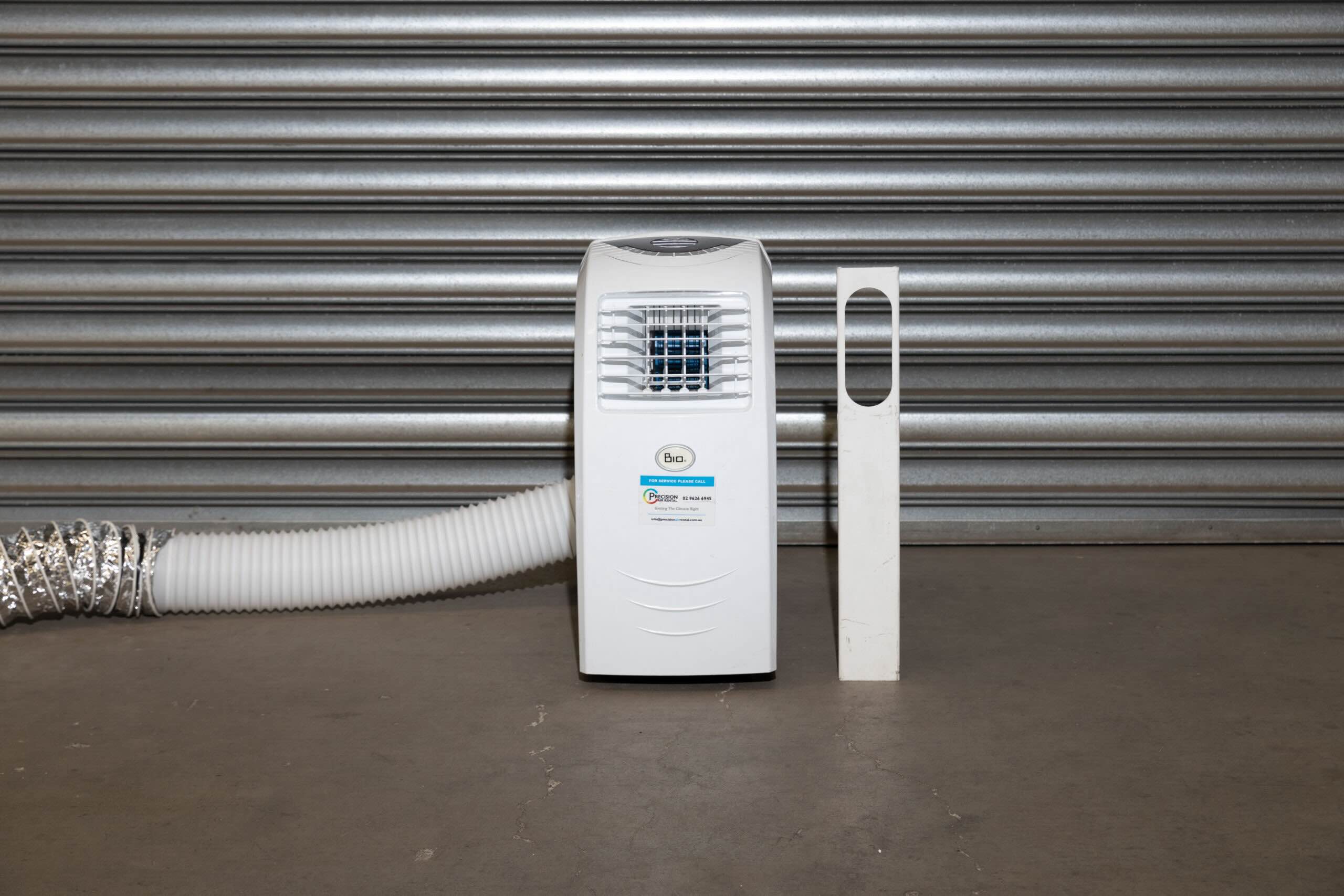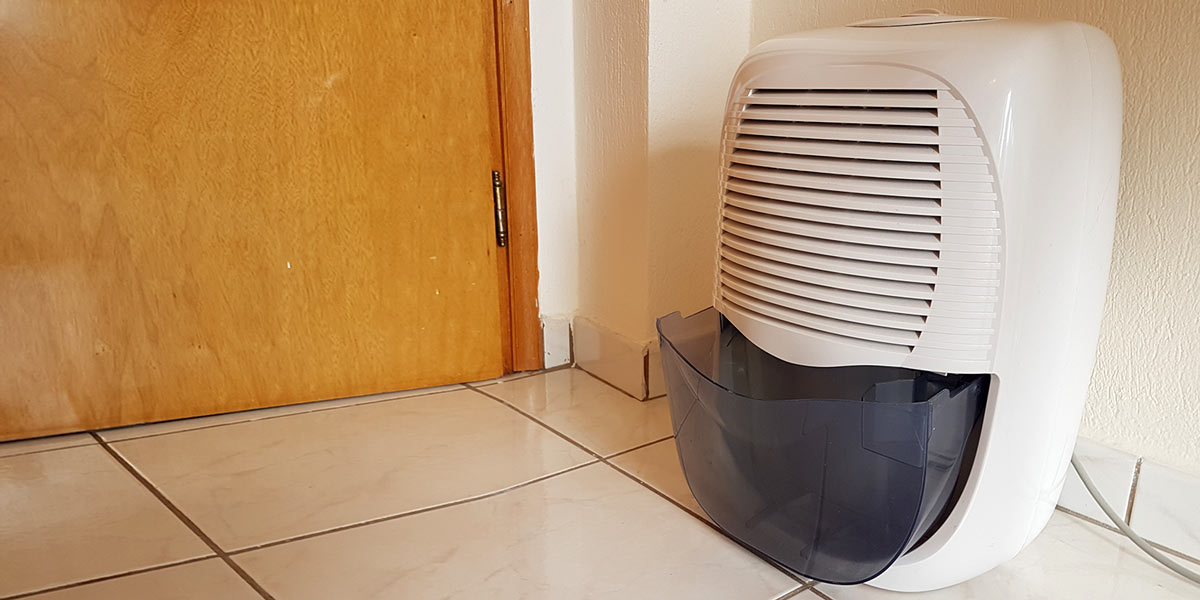Home>Home Maintenance>Where To Put Vinegar In An Air Conditioner
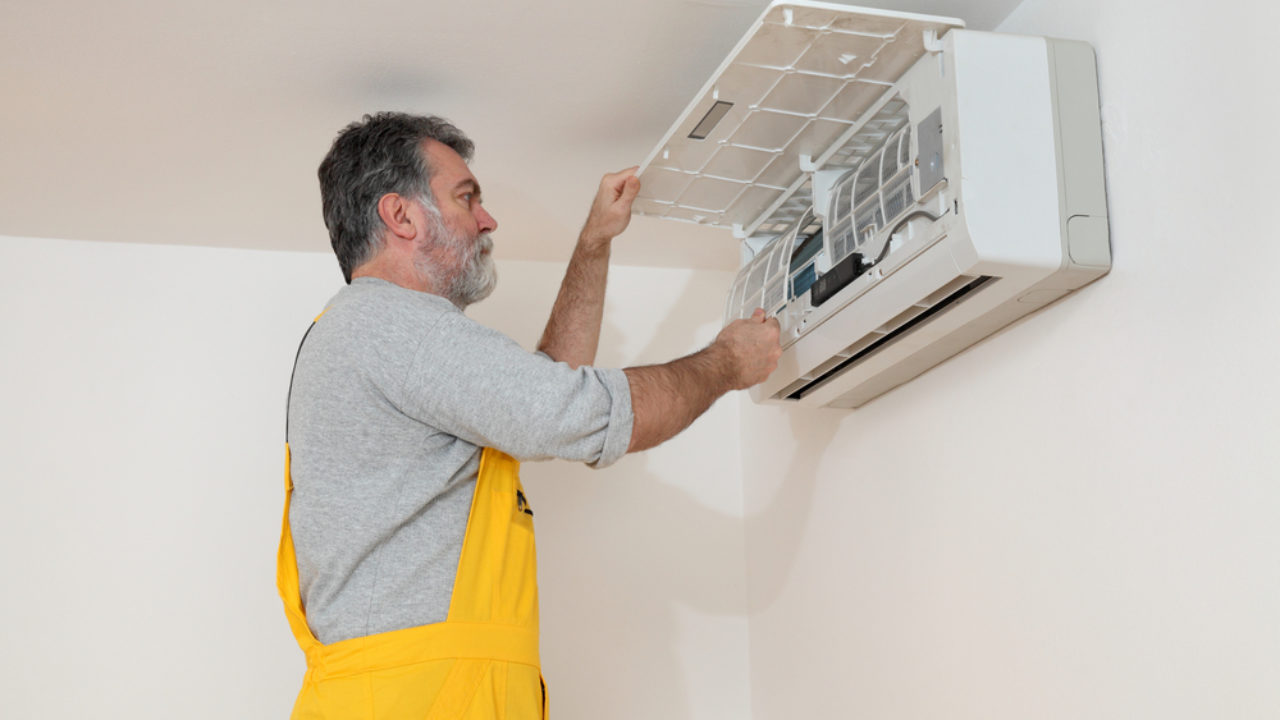

Home Maintenance
Where To Put Vinegar In An Air Conditioner
Modified: August 30, 2024
Looking for home maintenance tips? Learn where to put vinegar in an air conditioner for effective cleaning and better performance.
(Many of the links in this article redirect to a specific reviewed product. Your purchase of these products through affiliate links helps to generate commission for Storables.com, at no extra cost. Learn more)
Introduction
Maintaining a well-functioning air conditioner is crucial for creating a comfortable and healthy living environment. While regular maintenance is essential, there are natural and cost-effective methods to optimize the performance of your air conditioner. One such method is using vinegar.
Vinegar, a versatile household ingredient, is not only used in cooking and cleaning but can also be beneficial for your air conditioning system. Its acidic properties make it an effective solution for removing dirt, dust, and mineral buildup in the system, resulting in improved airflow and energy efficiency. In this article, we will discuss where to put vinegar in an air conditioner and how it can benefit your home’s cooling system.
Key Takeaways:
- Vinegar helps clean air conditioner coils, improving airflow and energy efficiency. It’s a natural, cost-effective, and environmentally friendly maintenance solution for a healthier home environment.
- Safety precautions are crucial when using vinegar to clean an air conditioner. Turn off the power, dilute the vinegar, and avoid oversaturating the coils to ensure a safe and effective cleaning process.
Read more: Where To Donate An Air Conditioner
Understanding the Function of Vinegar in an Air Conditioner
To comprehend the function of vinegar in an air conditioner, it’s important to understand how the cooling system works. Air conditioners utilize a series of coils to transfer heat from the indoor air to the outside, creating a cool and comfortable environment. However, over time, dust, dirt, and mineral deposits can accumulate on these coils, hindering their ability to effectively cool the air.
This is where vinegar comes into play. Vinegar, particularly white distilled vinegar, contains acetic acid, which is known for its cleaning properties. When applied to the air conditioner coils, vinegar helps dissolve and remove the dirt and mineral buildup, restoring the system’s efficiency.
Moreover, vinegar acts as a natural disinfectant, killing mold, bacteria, and other allergens that may be lurking in your air conditioner. This is particularly beneficial for individuals with allergies or respiratory issues, as a clean air conditioner promotes better indoor air quality.
It is important to note that vinegar should not be used as a substitute for professional maintenance or repairs. Regular check-ups by HVAC technicians are still necessary to ensure the air conditioner’s optimal performance. However, using vinegar as part of your maintenance routine can help prolong the lifespan of your system and improve its efficiency.
How to Safely Apply Vinegar to an Air Conditioner
Before applying vinegar to your air conditioner, it is crucial to follow safety guidelines to ensure a secure and effective process. Here are some steps to help you safely apply vinegar to your air conditioner:
- Turn off the power: Before starting any maintenance or cleaning tasks, make sure to turn off the power to the air conditioner. This will prevent any accidents or electrical hazards.
- Remove and clean the filters: Remove the filters from your air conditioner and clean them separately. This can be done by soaking them in a mixture of water and vinegar, then rinsing them thoroughly and allowing them to dry before reinstalling.
- Mix the vinegar solution: Prepare a solution of equal parts water and vinegar. This diluted vinegar solution is safe to use and will effectively clean the components of your air conditioner.
- Apply vinegar to the coils: Using a spray bottle, gently spray the vinegar solution onto the coils of your air conditioner. Be careful not to oversaturate the coils, as excessive moisture can lead to other issues.
- Let the vinegar sit: Allow the vinegar solution to sit on the coils for a few minutes to break down any dirt or debris. This will make it easier to remove during the rinsing process.
- Rinse the coils: After the vinegar has had sufficient time to work, rinse the coils with clean water. This will remove the vinegar residue as well as any loosened dirt or debris.
- Dry and reassemble: Once the coils are rinsed, allow them to dry completely before reassembling the air conditioner. This will prevent any moisture accumulation that can lead to mold or other issues.
- Turn on the power: Finally, turn the power to the air conditioner back on and ensure that it is functioning properly. If you notice any issues or strange noises, it may be necessary to contact a professional technician for further inspection.
By following these steps and taking the necessary precautions, you can safely apply vinegar to your air conditioner and experience the benefits of improved performance and indoor air quality.
Step-by-Step Guide on Where to Put Vinegar in an Air Conditioner
Knowing where to put vinegar in an air conditioner is crucial for effectively cleaning and maintaining the system. Here is a step-by-step guide to help you navigate the process:
- Locate the access panel: Start by locating the access panel on your air conditioner unit. This panel is typically located near the condenser coils.
- Remove the access panel: Using a screwdriver or appropriate tool, remove the screws or clips holding the access panel in place. Carefully set aside these components.
- Identify the condenser coils: Once the access panel is removed, you will be able to see the condenser coils. These coils are responsible for dissipating heat from the system.
- Spray vinegar solution on the coils: Using a spray bottle filled with a mixture of water and vinegar, apply the solution directly to the condenser coils. Ensure that the coils are evenly coated, but do not oversaturate them.
- Let the vinegar penetrate: Allow the vinegar solution to penetrate the coils for a few minutes. This will help break down any dirt, dust, or mineral deposits.
- Scrub gently if necessary: For stubborn buildup, you can use a soft-bristle brush to gently scrub the coils. Be careful not to damage the coils or use excessive force.
- Rinse the coils: After the vinegar has had sufficient time to work, rinse the coils thoroughly with clean water. This will remove any residue and leftover debris.
- Replace the access panel: Once the coils are clean and rinsed, carefully replace the access panel and secure it with the screws or clips. Ensure that it is properly aligned and tightly fastened.
Following this step-by-step guide will help you effectively clean your air conditioner coils with vinegar. Remember to exercise caution and follow safety guidelines throughout the process to avoid any accidents or damage to your system.
Mix 1 part vinegar with 1 part water and pour it into the condensate drain line of your air conditioner to prevent clogs and keep it running efficiently.
Precautions and Safety Tips
When using vinegar to clean your air conditioner, it is important to take certain precautions and follow safety guidelines to ensure the process goes smoothly and without any mishaps. Here are some essential precautions and safety tips to keep in mind:
- Turn off the power: Before starting any cleaning or maintenance tasks, always turn off the power to your air conditioner. This will prevent any electrical shock or damage to the system.
- Wear protective gear: When handling vinegar or cleaning solutions, it is advisable to wear protective gloves and goggles to protect your skin and eyes.
- Avoid using vinegar on sensitive components: While vinegar is safe to use on most parts of the air conditioner, it is best to avoid using it on sensitive components, such as electronic circuits or motors. If in doubt, consult the manufacturer’s instructions or seek professional advice.
- Use a diluted vinegar solution: To prevent any damage or corrosion, always dilute vinegar with water before applying it to your air conditioner. A 50/50 mixture of vinegar and water is generally safe and effective.
- Do not oversaturate the coils: When applying vinegar to the coils, be careful not to oversaturate them. Excessive moisture can lead to other issues, such as mold growth or damage to the system.
- Do not use vinegar on aluminum coils: If your air conditioner has aluminum coils, refrain from using vinegar, as it can cause corrosion. Instead, consult a professional for guidance on cleaning these specific coils.
- Properly dispose of vinegar residue: After cleaning the coils with vinegar, make sure to properly dispose of any leftover vinegar solution. Avoid pouring it down drains or toilets, as it may cause damage to plumbing systems.
By following these precautions and safety tips, you can ensure a safe and effective cleaning process for your air conditioner using vinegar.
Read more: Where Is The Fuse For The Air Conditioner
Benefits of Using Vinegar in an Air Conditioner
Using vinegar in your air conditioner can offer several benefits, both in terms of system performance and indoor air quality. Here are some key advantages of incorporating vinegar into your air conditioning maintenance routine:
- Improved efficiency: Over time, dust, dirt, and mineral deposits can accumulate on the coils of your air conditioner, reducing its efficiency. Vinegar, with its acidic properties, helps dissolve and remove these buildups, allowing the system to function more efficiently and cool the air more effectively.
- Better airflow: By eliminating dirt and debris from the coils, vinegar enhances airflow within the air conditioner. This ensures that the cool air is distributed evenly throughout the space, providing adequate comfort.
- Enhanced indoor air quality: Vinegar acts as a natural disinfectant and kills mold, bacteria, and other allergens that may be present in your air conditioner. This helps improve indoor air quality, making it healthier for you and your family.
- Cost-effective cleaning solution: Vinegar is an affordable and readily available cleaning solution. By incorporating vinegar into your air conditioner maintenance routine, you can save money on expensive commercial cleaning products.
- Environmentally friendly: Unlike chemical-based cleaners, vinegar is environmentally friendly and does not release harmful pollutants into the air or water systems. It is a sustainable alternative that allows you to clean your air conditioner while minimizing your environmental footprint.
- Prolonged lifespan of the system: Regularly cleaning your air conditioner with vinegar helps remove dirt, debris, and mineral buildup that can cause strain on the system. This can help extend the lifespan of your air conditioner, saving you money on premature replacements.
It is important to note that while vinegar can be a useful tool in maintaining your air conditioner, it should not replace professional maintenance or repairs. Regular check-ups by HVAC technicians are still necessary to ensure the overall health and performance of your system.
By utilizing vinegar as part of your air conditioner maintenance routine, you can experience these benefits and maximize the performance and longevity of your cooling system.
Conclusion
Incorporating vinegar into your air conditioner maintenance routine can be a cost-effective and environmentally friendly way to improve its performance and enhance indoor air quality. By understanding the function of vinegar in an air conditioner and following safety guidelines, you can effectively apply vinegar to clean the coils, thereby improving airflow, energy efficiency, and overall system performance.
While vinegar offers numerous benefits, it is important to remember that it should not replace professional maintenance or repairs. Regular check-ups by HVAC technicians are still necessary to ensure the optimal functioning of your air conditioner.
Take the necessary precautions, such as turning off the power, diluting the vinegar, and avoiding oversaturation of the coils, to ensure a safe and effective cleaning process. Additionally, be mindful of any specific manufacturer guidelines or recommendations for cleaning your particular air conditioner model.
By regularly incorporating vinegar into your air conditioner maintenance routine, you can prolong the lifespan of your system, improve energy efficiency, and enjoy better indoor air quality. So, grab a spray bottle, mix up a solution of vinegar and water, and give your air conditioner the cleaning it deserves.
Remember, a well-maintained air conditioner not only keeps you cool and comfortable but also contributes to a healthier and more pleasant living environment for you and your family.
Frequently Asked Questions about Where To Put Vinegar In An Air Conditioner
Was this page helpful?
At Storables.com, we guarantee accurate and reliable information. Our content, validated by Expert Board Contributors, is crafted following stringent Editorial Policies. We're committed to providing you with well-researched, expert-backed insights for all your informational needs.

